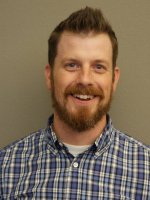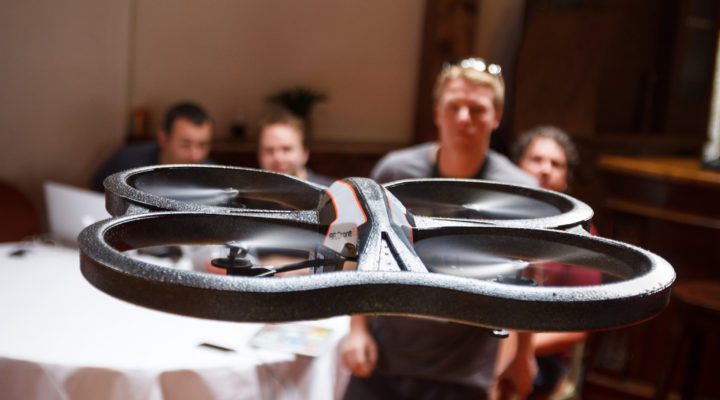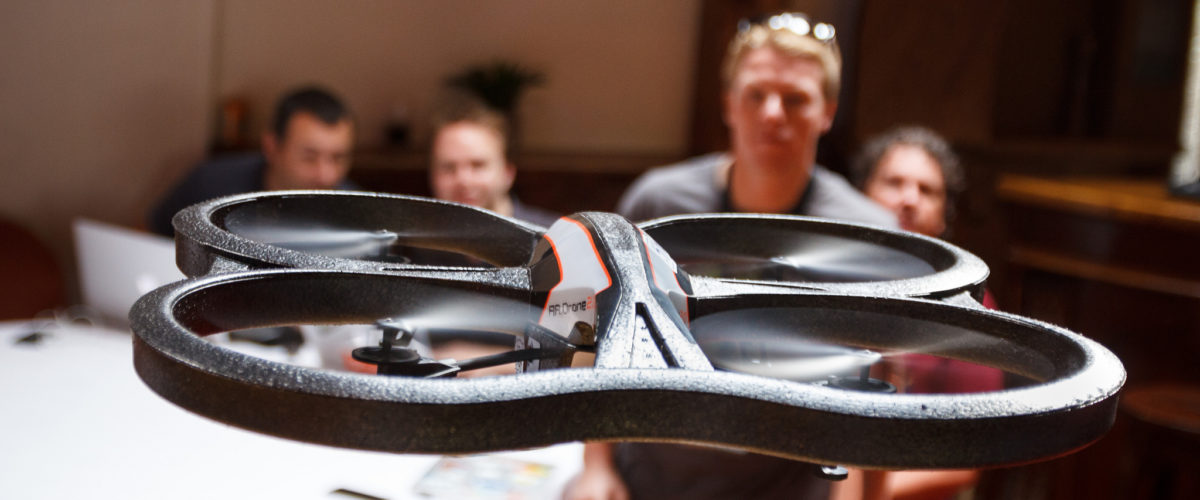A West Coast church is attracting science- and adventure-loving students with a new program that prepares them for careers as commercial drone pilots.
“Drones are just cool,” said Matt Overton, associate pastor of youth and family ministries for Columbia Presbyterian Church in Vancouver, Wash.
But the coolest part of the effort is that it’s not really about drones or jobs, at all, Overton said.
“It’s about the why and who of their lives,” he said. “All of this is evangelism and discipleship based.”
It’s also about answering the challenge that all churches face in a time of declining attendance and revenues. The response must be to assess congregational talents and interests, to seek where God is already at work in the community, and then to take chances on new approaches to ministry, Overton said.

Matt Overton
“We are willing to try anything,” he said. “This is the phase the American church is in. We have to take risks and see what happens.”
Columbia Presbyterian has been doing that long enough that Overton is being asked by other churches to speak and consult on creative ways to do youth ministry.
The church was the focus of previous media reports about a mentoring program that uses a for-profit lawn-care business Overton started to connect with young people.
The same approach is being used now to teach high school students — eight, so far — how to become FAA-certified drone pilots.
“We are interested in anything that allows adults and students to get together and talk about life,” Overton said.
It all stems from the church’s mentoring and training effort called The Columbia Future Forge. The program pairs adult mentors from Columbia and other churches with youth who are led through topics such as goal setting, money management, stewardship, conflict resolution and professionalism.
The job-training available through Mowtown, drone certification and through jobs with local business partners helps them utilize the life skills they develop with the guidance of mentors, Overton said.
The goal is to see drone program graduates receive academic credit and FAA certification. It could lead to piloting careers in agriculture, construction and search and rescue, Overton said.
The students meet in the church gymnasium to practice drone flying as individuals and as teams.
The youth are always impressed to find a church that cares about their professional futures, Overton said.
“It shows them you care about them and their actual lives,” Overton said. “Teens don’t get a sense there are a lot of people who actually care about them.”
It also demonstrates that “we’re interested in you and we’re interested in what you’re interested in,” he added.
But that isn’t where the interest stops. The Future Forge program also demonstrates concern about adults in the congregation, Overton said.

Marc Hartquist
“A lot of adults never feel their gifts are used at their local church,” he said.
That can be especially true for Christians with science and engineering backgrounds. For them, the drone project has been a blessing, said Marc Hartquist, a Columbia Presbyterian member, retired Hewlett-Packard engineer and current IT consultant.
“This is a pretty unique opportunity and it’s interesting and challenging,” Hartquist said.
“The tech piece is great and one of the really cool things is the students love science and technology, as well.”
The scientific and technological aspects offer natural segues into the larger, eternal lessons that undergird the mentoring relationships, Hartquist said.
“What we are trying to do is reinforce the training and the concepts important to the Forge,” he said. “Drone training is just an add-on.”
Hartquist said he’s heard student feedback expressing an appreciation for the program’s focus on their personal development and spiritual wellbeing.
“That’s really cool to see,” he said.
It’s also been inspiring to witness a church being creative in the ways it serves the needs of youth.
“For me that’s what this is about — engaging in different ways of thinking about church.”
Overton said he’s often contacted by churches curious to know how Columbia has generated and implemented youth ministry concepts. He’s launched a web site to collect and share innovative ideas.
His main suggestion is not to copy other churches but to take the time to discern ways to match internal skills with community needs.
The drone program wouldn’t have worked at Columbia “if I hadn’t known our congregation has a lot of nerdy engineer types,” Overton said.


